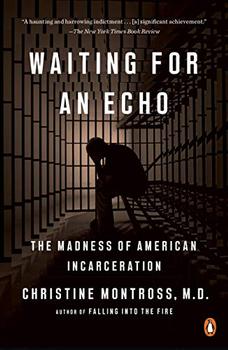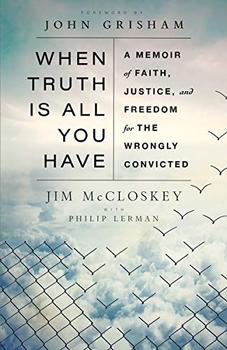Summary | Excerpt | Reviews | Beyond the book | Read-Alikes | Genres & Themes | Author Bio

How One Man Found Light in the Darkest Place
by David SheffThe #1 New York Times bestselling author of Beautiful Boy explores the transformation of Jarvis Jay Masters who has become one of America's most inspiring Buddhist practitioners while locked in a cell on death row.
Jarvis Jay Masters's early life was a horror story whose outline we know too well. Born in Long Beach, California, his house was filled with crack, alcohol, physical abuse, and men who paid his mother for sex. He and his siblings were split up and sent to foster care when he was five, and he progressed quickly to juvenile detention, car theft, armed robbery, and ultimately San Quentin. While in prison, he was set up for the murder of a guard—a conviction which landed him on death row, where he's been since 1990.
At the time of his murder trial, he was held in solitary confinement, torn by rage and anxiety, felled by headaches, seizures, and panic attacks. A criminal investigator repeatedly offered to teach him breathing exercises which he repeatedly refused. Until desperation moved him to ask her how to do "that meditation shit." With uncanny clarity, David Sheff describes Masters's gradual but profound transformation from a man dedicated to hurting others to one who has prevented violence on the prison yard, counseled high school kids by mail, and helped prisoners—and even guards—find meaning in their lives.
Along the way, Masters becomes drawn to the principles that Buddhism espouses—compassion, sacrifice, and living in the moment—and he gains the admiration of Buddhists worldwide, including many of the faith's most renowned practitioners. And while he is still in San Quentin and still on death row, he is a renowned Buddhist thinker who shows us how to ease our everyday suffering, relish the light that surrounds us, and endure the tragedies that befall us all.
Carefully mining Masters' pilgrimage through Buddhism, Sheff effectively reveals the religion as a tranquil partner to the incarcerated man in his struggles through legal and personal challenges: trying to prove his innocence, reconciling his violent past. Page after page, chapter after chapter, the reader is asked to reconsider, not prison, but the prisoner. To reconsider his soul. His divinity. His selflessness. A Buddhist on Death Row is a prison story notably absent of blame, victimization and absolution. Perhaps that is why Masters' humanity feels heroic, particularly when he extends himself to those who are non-believers...continued
Full Review
 (615 words)
(615 words)
(Reviewed by Valerie Morales).
Jarvis Jay Masters was five years old when he was taken from his overwhelmed mother and placed with foster parents Mamie and Dennis Procks. They bestowed upon him the kind of luxuries middle class children take for granted. He had his own room, his own toys and clean clothes. His sheets were even ironed. More importantly, he wasn't neglected, abused or refused love. But when Mamie Procks became ill and could no longer care for him, he was moved. Again and again and again. While the Procks had extended love and mercy, kindness and laughter, goodness and warmth, his other foster families denied him food and beat him for small infractions. He ended up in juvenile lockup, where he was forced to fight, burned with cigarettes and sadistically ...

If you liked The Buddhist on Death Row, try these:

by Christine Montross
Published 2021
Galvanized by her work in our nation's jails, psychiatrist Christine Montross illuminates the human cost of mass incarceration and mental illness

by Jim McCloskey, Philip Lerman
Published 2021
By the founder of the first organization in the United States committed to freeing the wrongly imprisoned, a riveting story of devotion, sacrifice, and vindication.